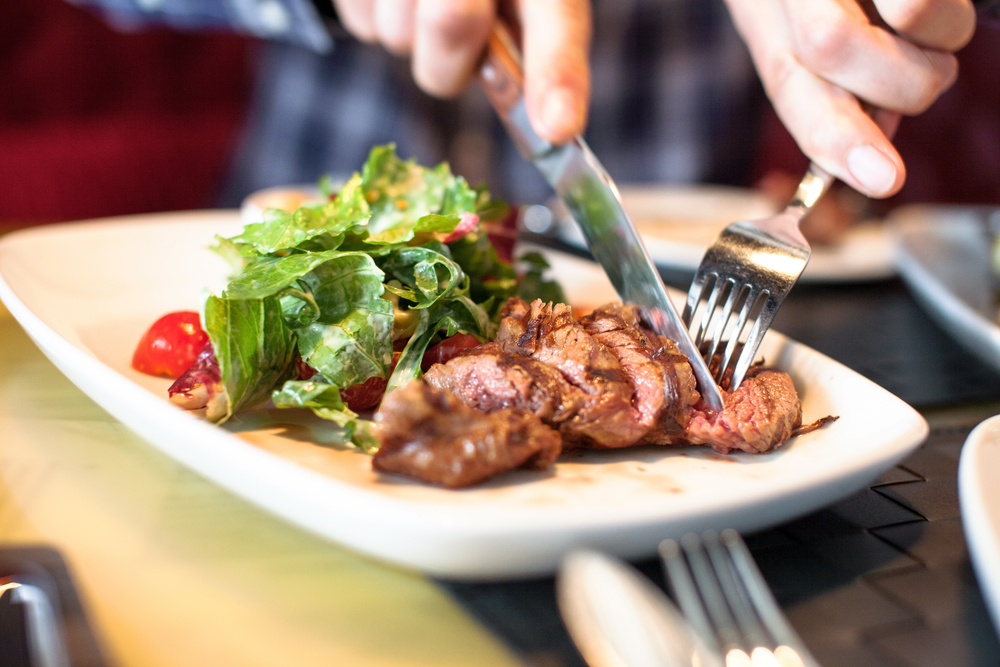Food of the Future: Joyful Ventures Raises $23M To Invest in Sustainable Protein

The VC fund is looking to solve the climate crisis with forward-thinking food innovations
Sustainability may seem like a buzzword, but for one social-impact venture fund, it’s the future.
Joyful Ventures has closed $23 million of its $25 million sustainable protein fund, prioritizing early-stage firms specializing in sustainable and regenerative protein solutions such as plant-based, precise fermentation, mycoproteins, molecular agriculture and cultured technologies, with an emphasis on B2B.
While the above concepts may seem straight out of a head-scratching chemistry class, Joyful Venture’s goal is simple: transitioning to sustainable protein for the greater good.
The VC fund cites that animal farming is responsible for over 15% of all human-caused greenhouse gases and beef production is the cause of 41% of deforestation. As for emerging infectious diseases, over 75% are zoonotic, such as SARS, Swine and Bird Flu and up to 80% of antibiotics are fed to livestock, resulting in antibiotic-resistant microbes. Perhaps most startling, Joyful Ventures says 1 in every 25 packages of chicken found at the grocer are contaminated with Salmonella.
“We are not just investing in companies; we are investing in global transformation,” said co-founder Milo Runkle. “We are proud to champion entrepreneurs forging a future where nutritious, sustainable food is universally accessible.”
Co-founders Runkle, Jennifer Stojkovic and Blaine Vess have a common background in forward-thinking food and business.
Runkle, a food system reform advocate, is the founder of Mercy For Animals and co-founder of New Crop Capital and The Good Food Institute. Stojkovic is the founder of Vegan Women Summit and an award-winning author who is an advisor and board member to plant-based brands. Vess offers a career of seasoned entrepreneurship and is an investor in over 50 startups.
“The future is full of world-changing sustainable protein companies whose founders face critical challenges in early stages,” Vess said.
Joyful Ventures views its endeavors as an investment in lending a hand to the ongoing climate crisis, pointing to a recent Boston Consulting Group study that found that investing in plant-based protein is eleven times more impactful than electric vehicles, four times more impactful than green building and three times more impactful than decarbonizing cement.
“Rather than trying to capture the carbon, methane and nitrogen that we’re creating, let’s prevent it from happening by changing what is on our plates,” Stojkovic said. “If you are investing in climate and you want real, scalable solutions, there’s nothing better than food.”
The LGBTQ and women-led firm’s 506(c) fund is accepting limited partners with a minimum $25,000 commitment.
Sustainable Protein Startups Gain Momentum
Two startups have already attracted Joyful Ventures as an investor: San Francisco-based Orbillion Bio, which boasts a proprietary full-stack approach to cultivated meat, and Toronto’s New School Foods, which uses a unique muscle fiber and scaffolding platform to create plant-based seafood alternatives.

While implementing food technology and innovation may seem far off into the future, Joyful Venture’s announcement comes shortly after the USDA recently approved cell-cultivated meat for Upside, which uses a groundbreaking method of cultivating meat by collecting livestock cells from living animals. By doing so, Upside says it can improve the welfare of animals. The company has attracted notable investors including Bill Gates, Whole Foods founder John Mackey and Richard Branson.
Good Meat also received approval from the USDA to sell its chicken made from animal cells. The food tech company launched in Singapore in 2020 and has since been featured at fine dining establishments. Good Meat says that its started production on its first batch of chicken to be sold to restaurateur and humanitarian Chef José Andrés, owner of José Andrés Group, which operates over 30 restaurants across the U.S. One dining location in Washington D.C. will be the first in the nation to serve Good Meat’s cultivated chicken.
Innovative food technology is predicted to be a hit with Gen Z and Millennials, who will drive the plant-based market through 2024, according to a report by The NPD Group. Additionally, approximately one in five adults report wanting more plant-based foods in their diets.



